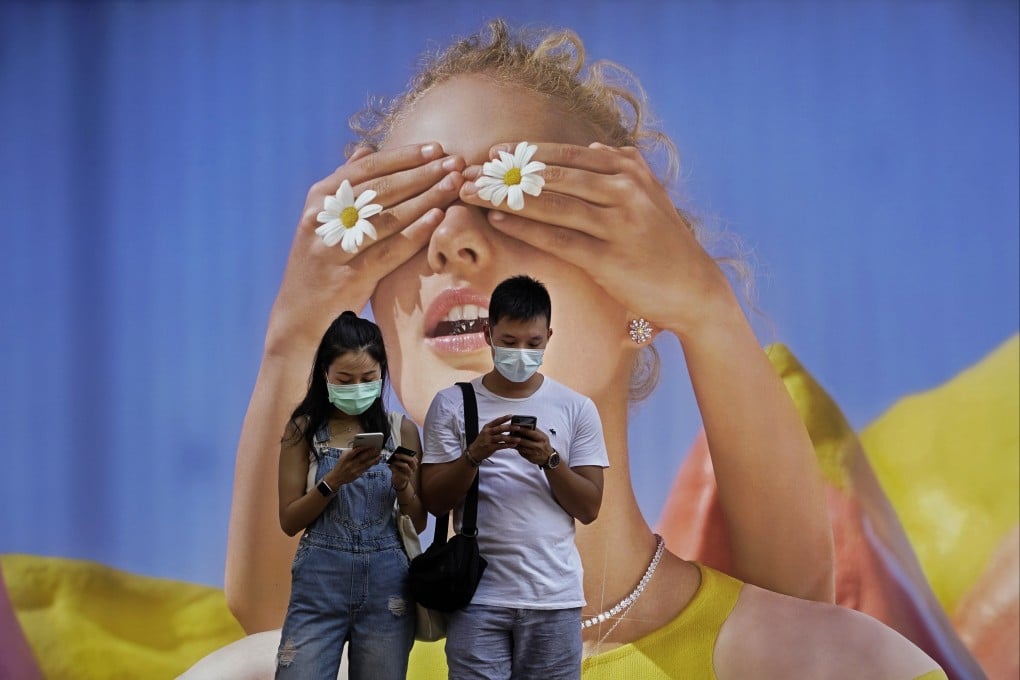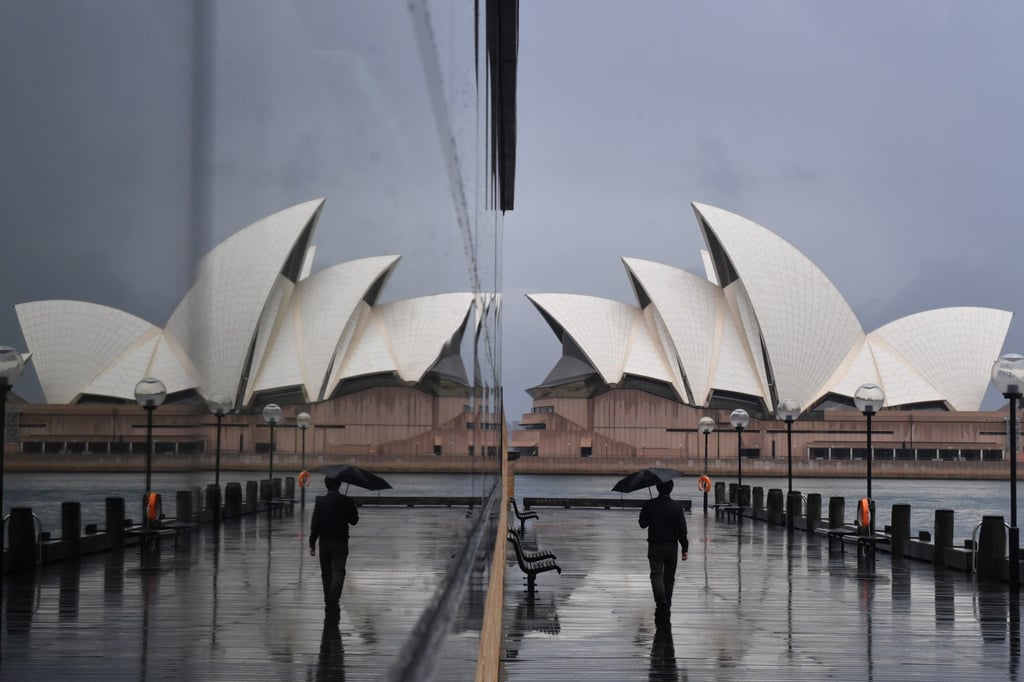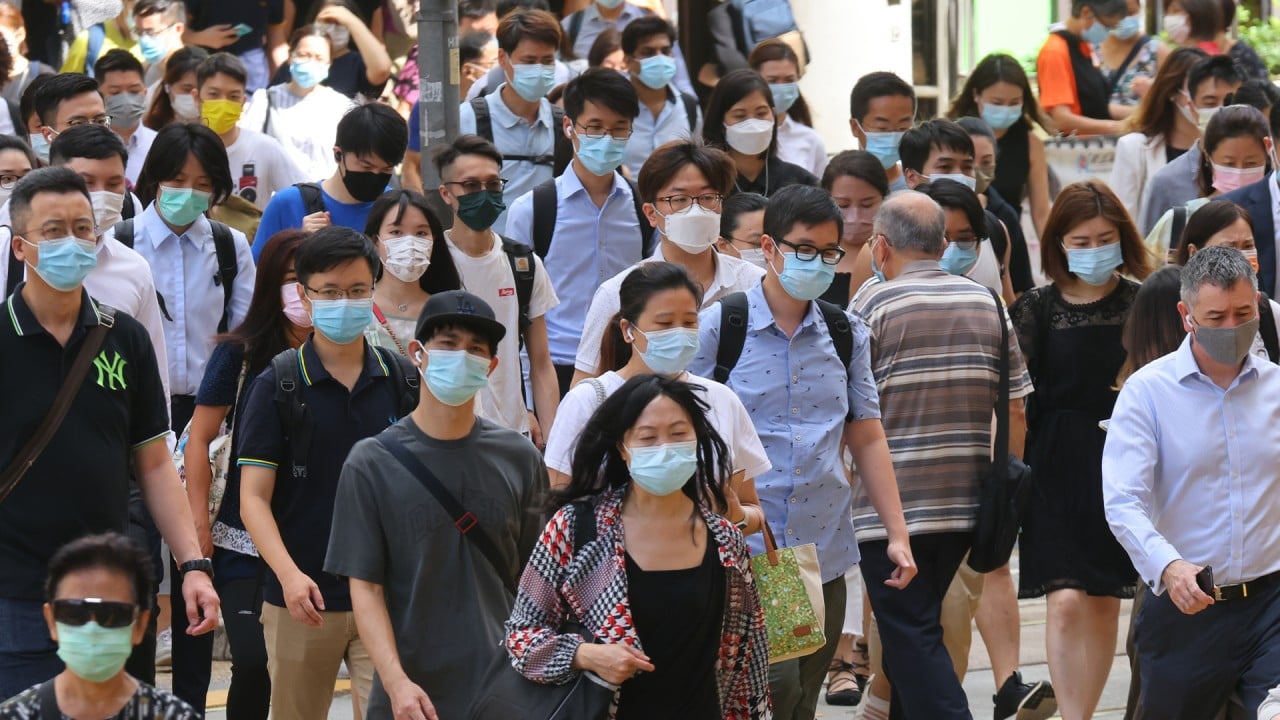How does ‘zero-Covid’ end? From Hong Kong to Australia and New Zealand, questions mount over exit strategy
- As Delta spreads and hopes for herd immunity fade, economies taking a zero-tolerance approach face questions over whether they can ever exit their bubbles
- With no clear end in sight to quarantines and lockdowns, some say it is time to embrace new ways of thinking about the pandemic’s toll and prioritise mental health

The Hong Kong-based brand strategist, who has racked up no fewer than seven stays in quarantine during the pandemic, did not want to waste his money on a test he was certain would soon become worthless.
Granger’s suspicions proved correct this week when Hong Kong abruptly scrapped a reduction in hotel quarantine to seven days for vaccinated arrivals just days after it began, sparking travel chaos for countless residents returning from overseas.
“Serology testing was a lame attempt at opening up travel a little, and failed before it started,” Granger said. “Ultimately it’s zero-Covid thinking. Which is a goal that is unattainable.”
From Australia and New Zealand to mainland China, Taiwan and Hong Kong, the Delta variant, a hyper-cautious public health establishment and policy flip-flopping have cast a cloud of uncertainty over the endpoint of sealed borders and tough public health measures such as lockdowns.
Despite expectations that “zero-Covid” economies will reopen as vaccination rates rise, mixed messaging from political leaders and public health experts has raised questions about when – or even if – that will actually happen, even as Europe and North America, which have suffered some 2 million deaths, increasingly learn to live with the virus.
The lack of a clear end in sight has fuelled growing frustration with an approach that, despite saving countless lives, has decimated businesses, separated families across borders and severely impacted mental health.
“Vaccination alone won’t reopen society without the political will to actually take some risk,” said Shahar Hameiri, an associate professor of politics at the University of Queensland. “There is no magic number that will suddenly convince everyone that it’s all going to be OK. We’ll need to relearn how to think about this pandemic, or we will never come out of it.”
In Hong Kong, authorities have provided no timetable or plan for moving beyond a zero-Covid strategy, despite expectations that 70 per cent of adults or more could be vaccinated before the end of the year.
Ben Cowling, an infectious diseases expert at the University of Hong Kong, said it appeared a “long-term zero-Covid strategy” was among the options under consideration for the city.
“I hope we will be able to relax the public health measures and quarantines very soon, once we have reached a high vaccine coverage,” Cowling said.
In Australia, where about 28 per cent of over-16s are fully vaccinated, some state leaders have vowed to stick with a zero-tolerance approach to Covid and lockdowns even after vaccine coverage among adults reaches 80 per cent – a target Canberra has linked to the easing of border controls.

New Zealand on August 12 announced plans to allow quarantine-free entry to vaccinated travellers from “low risk” countries within the first quarter of 2022, although an expert panel advising the government has recommended authorities stick with an elimination approach to the virus indefinitely.
Singapore, which has fully vaccinated about three-quarters of its total population, has pledged to resume quarantine-free travel for those who are vaccinated from next month. The city state announced on Thursday that all travellers from Hong Kong and Macau would be able to skip quarantine from next week, while quarantine-free “travel lanes” with Germany and Brunei would open for vaccinated arrivals from September 8.
For societies that have yet to experience even flu-level deaths from Covid-19, the Delta variant, which is about twice as infectious as the original virus identified in Wuhan, China, has complicated the already difficult political and psychological task of reopening.
The mutant strain is widely believed to have made herd immunity – the level of immunity at which the virus stops spreading widely – an impossibility even with high vaccination rates. In highly-vaccinated countries such as Britain, Ireland and Israel, cases have risen or remained high even as hospitalisation and deaths have been reduced to fractions of their peak levels.

